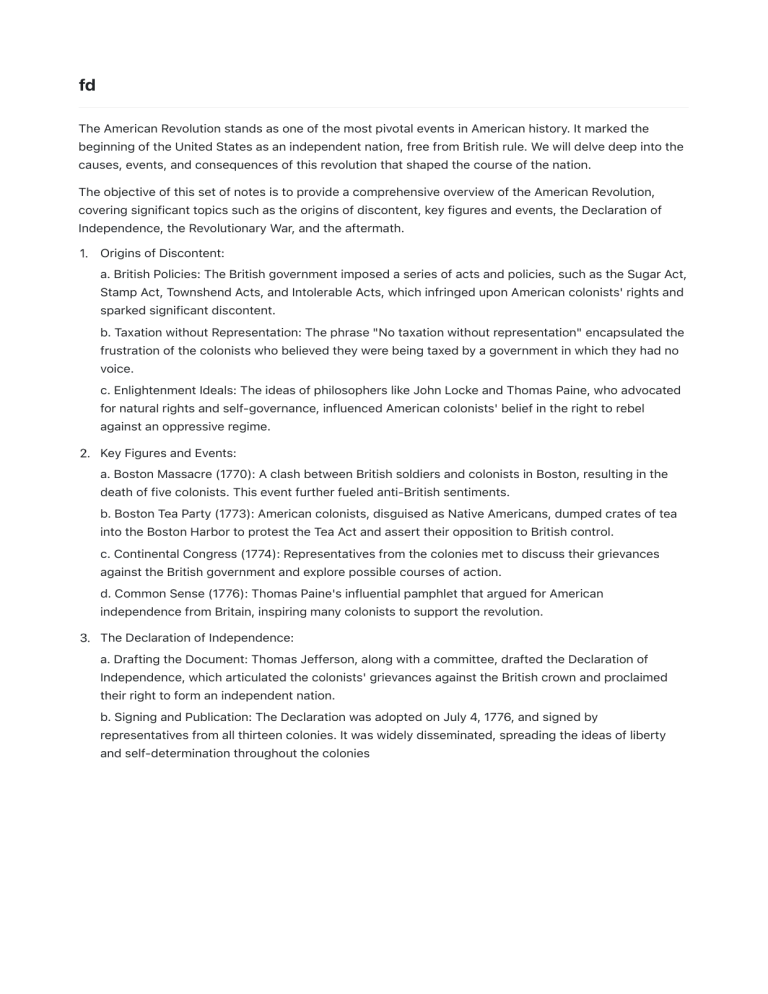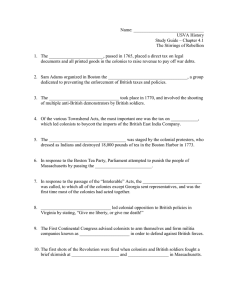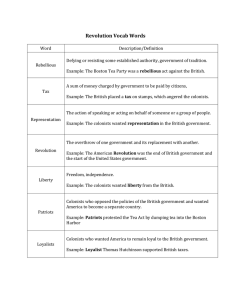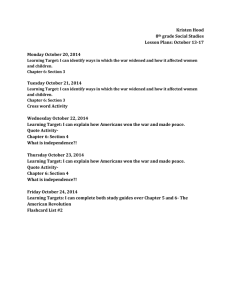
fd The American Revolution stands as one of the most pivotal events in American history. It marked the beginning of the United States as an independent nation, free from British rule. We will delve deep into the causes, events, and consequences of this revolution that shaped the course of the nation. The objective of this set of notes is to provide a comprehensive overview of the American Revolution, covering significant topics such as the origins of discontent, key figures and events, the Declaration of Independence, the Revolutionary War, and the aftermath. Origins of Discontent: a. British Policies: The British government imposed a series of acts and policies, such as the Sugar Act, Stamp Act, Townshend Acts, and Intolerable Acts, which infringed upon American colonists' rights and sparked significant discontent. b. Taxation without Representation: The phrase "No taxation without representation" encapsulated the frustration of the colonists who believed they were being taxed by a government in which they had no voice. c. Enlightenment Ideals: The ideas of philosophers like John Locke and Thomas Paine, who advocated for natural rights and self-governance, influenced American colonists' belief in the right to rebel against an oppressive regime. Key Figures and Events: a. Boston Massacre (1770): A clash between British soldiers and colonists in Boston, resulting in the death of five colonists. This event further fueled anti-British sentiments. b. Boston Tea Party (1773): American colonists, disguised as Native Americans, dumped crates of tea into the Boston Harbor to protest the Tea Act and assert their opposition to British control. c. Continental Congress (1774): Representatives from the colonies met to discuss their grievances against the British government and explore possible courses of action. d. Common Sense (1776): Thomas Paine's influential pamphlet that argued for American independence from Britain, inspiring many colonists to support the revolution. The Declaration of Independence: a. Drafting the Document: Thomas Jefferson, along with a committee, drafted the Declaration of Independence, which articulated the colonists' grievances against the British crown and proclaimed their right to form an independent nation. b. Signing and Publication: The Declaration was adopted on July 4, 1776, and signed by representatives from all thirteen colonies. It was widely disseminated, spreading the ideas of liberty and self-determination throughout the colonies



